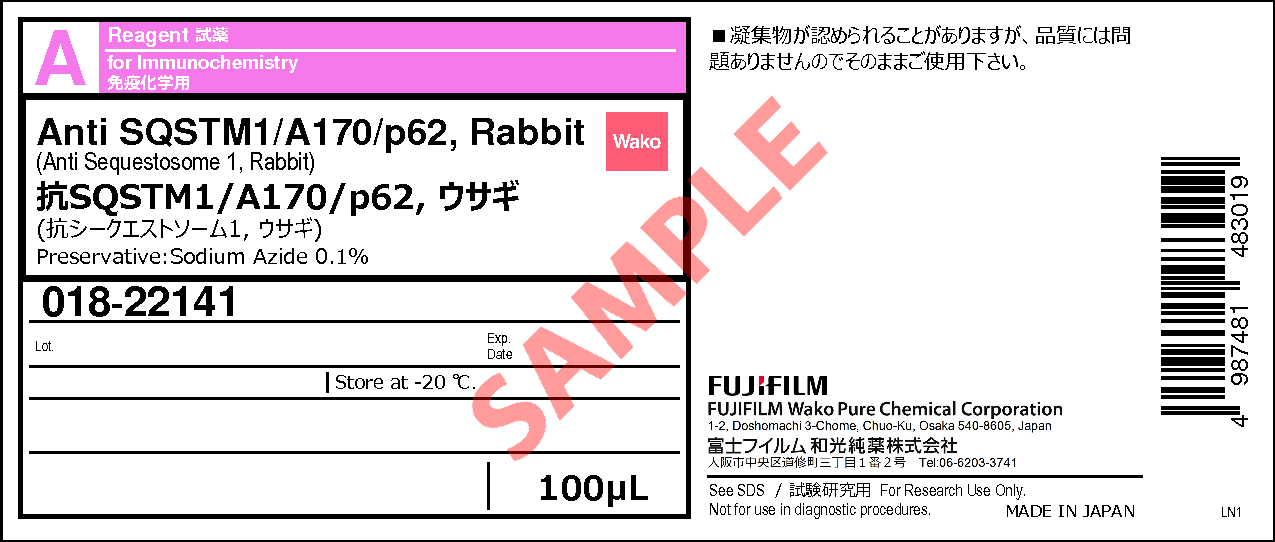Anti SQSTM1/A170/p62, Rabbit
- for Immunochemistry
- Manufacturer :
- FUJIFILM Wako Pure Chemical Corporation
- Storage Condition :
- Keep at -20 degrees C.
- Source :
- Mouse
- Host :
- Rabbit
- Structural Formula
- Label
- Packing
|
Comparison
|
Product Number
|
Package Size
|
Price
|
Inventory
|
|
|---|---|---|---|---|---|
|
|
|
100uL
|
|
Document
Overview / Applications
| Outline | This product is for research use only. Do not administer it to human.
Sequestosome 1 (SQSTM1)/A170 (mouse)/p62 (human)/ZIP (rat) a ubiquitin-binding protein, expresses oxidative stress-dependently. Abnormality of SQSTM1 leads to bone metabolic disorder, obesity and Type II diabetes. SQSTM1 was reported to bind LC3, which regulates autophagosome formation. The protein has attracted the attention of researchers because it is believed to induce a protein from ubiquitin-proteosome system (UPS) to the lysosome-dependent macroautophagy (autophagy) system, which are two major intracellular pathways for protein degradation. Wako launched the mouse SQSTM1 (A170) rabbit antiserum, which is applicable to Western blot, immunohistochemistry and immunofluorescence. Preparation
References
|
|---|
Property
Antibody Information
| Antigen | SQSTM1/A170/p62 |
|---|---|
| Antigen Alias | sequestosome 1 p62/SQSTM1 PDB3, ZIP3, p60, p62 SQSTM1 SQSTM1/A170/p62 OSIL PDB3 ZIP3 sequestosome-1 (ubiquitin-binding protein p62, p60, EBIAP, PDB3, ZIP3) sequestosome-1 (SQSTM1, ubiquitin-binding protein p62, p60, EBIAP, PDB3, ZIP3) |
Manufacturer Information
Alias
- Anti Sequestosome 1, Rabbit
For research use or further manufacturing use only. Not for use in diagnostic procedures.
Product content may differ from the actual image due to minor specification changes etc.
If the revision of product standards and packaging standards has been made, there is a case where the actual product specifications and images are different.




